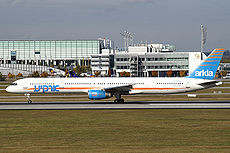
The 2002 Mombasa attacks was a two-pronged terrorist attack on 28 November 2002 in Mombasa, Kenya against an Israeli-owned hotel and a plane belonging to Arkia Airlines. An all-terrain vehicle crashed through a barrier outside the Paradise Hotel and blew up, killing 13 and injuring 80. At the same time, attackers fired two surface-to-air missiles at an Israeli charter plane. The Paradise Hotel was the only Israeli-owned hotel in the Mombasa area. The attacks were believed to be orchestrated by al-Qaeda operatives in Somalia in an attempt to disrupt the Israeli tourist industry on the African continent. Much speculation has occurred as to who the perpetrators are, but no complete list of suspects has been defined. The attack was the second al-Qaeda terrorist operation in Kenya, following the bombing of the U.S. embassy in Nairobi in 1998. Following the attack, the UN Security Council and other nations condemned the bombing.
There is no universal agreement on the legal definition of terrorism, although there exists a consensus academic definition created by scholars.
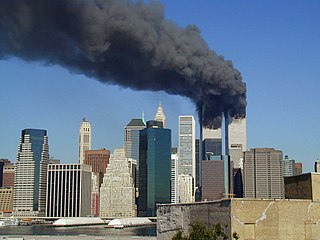
United Nations Security Council Resolution 1373, adopted unanimously on 28 September 2001, is a counterterrorism measure passed following the 11 September terrorist attacks on the United States. The resolution was adopted under Chapter VII of the United Nations Charter, and is therefore binding on all UN member states.

United Nations Security Council resolution 1566, adopted unanimously on 8 October 2004, after reaffirming resolutions 1267 (1999), 1373 (2001) and 1540 (2004), the Council condemned terrorism as a serious threat to peace and strengthened anti-terrorism legislation.
Anti-terrorism legislation are laws with the purpose of fighting terrorism. They usually, if not always, follow specific bombings or assassinations. Anti-terrorism legislation usually includes specific amendments allowing the state to bypass its own legislation when fighting terrorism-related crimes, under alleged grounds of necessity.
The Counter-Terrorism Committee is a subsidiary body of the United Nations Security Council.
The Global Initiative to Combat Nuclear Terrorism (GICNT) is an international organization consisting of 89 countries that have endorsed a set of nuclear security principles for nuclear terrorism deterrence, prevention, detection, and response. It is co-chaired by the United States and Russia. The organization aims to develop partnership capacity to combat nuclear terrorism, consistent with national legal authorities and obligations as well as relevant international legal frameworks such as the Convention for the Suppression of Acts of Nuclear Terrorism, the Convention on the Physical Protection of Nuclear Material, and United Nations Security Council Resolutions 1373 and 1540.

United Nations Security Council resolution 1189, adopted unanimously on 13 August 1998, after expressing its deep disturbance at the bombings in Nairobi, Kenya, and Dar es Salaam, Tanzania on 7 August 1998, the Council strongly condemned the terrorist attacks and called on countries to adopt measures to prevent further incidents.

United Nations Security Council resolution 1368, adopted unanimously on 12 September 2001, after expressing its determination to combat threats to international peace and security caused by acts of terrorism and recognising the right of individual and collective self-defense, the Council condemned the September 11 attacks in the United States.
United Nations Security Council resolution 1390, adopted unanimously on 16 January 2002, after recalling resolutions 1267 (1999), 1333 (2000), 1363 (2001), 1368 (2001), 1373 (2001) 1378 (2001) and 1383 (2001) concerning the situation in Afghanistan and terrorism, the Council imposed further sanctions on Osama bin Laden, Al-Qaeda, the Taliban and others associated with them.
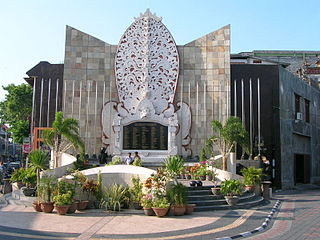
United Nations Security Council resolution 1438, adopted unanimously on 14 October 2002, after reaffirming the principles of the United Nations Charter and Resolution 1373 (2001), the Council condemned the bombings in Bali, Indonesia.
United Nations Security Council resolution 1440, adopted unanimously on 24 October 2002, after reaffirming the principles of the United Nations Charter and Resolution 1373 (2001), the Council condemned the hostage-taking at a theatre in Moscow, Russia, by Chechen militants.

United Nations Security Council resolution 1455, adopted unanimously on 17 January 2003, after recalling resolutions 1267 (1999), 1333 (2000), 1363 (2001), 1373 (2001), 1390 (2001) and 1452 (2002) concerning Al-Qaeda, the Taliban and terrorism, the council improved the implementation of measures against the groups. It was the first Security Council resolution adopted in 2003.

United Nations Security Council resolution 1465, adopted unanimously on 13 February 2003, after reaffirming the principles of the United Nations Charter and Resolution 1373 (2001), the council condemned the bomb attack outside the El Nogal Club in Bogotá, Colombia on 7 February 2003.
United Nations Security Council resolution 1516, adopted unanimously on 20 November 2003, after reaffirming the principles of the United Nations Charter and Resolution 1373 (2001), the council condemned the bombings in Istanbul, Turkey on 15 and 20 November 2003.
United Nations Security Council resolution 1530, adopted unanimously on 11 March 2004, after reaffirming the principles of the United Nations Charter and Resolution 1373 (2001), the council condemned the train bombings in Madrid, Spain, on 11 March 2004. It was passed hours after the attacks.
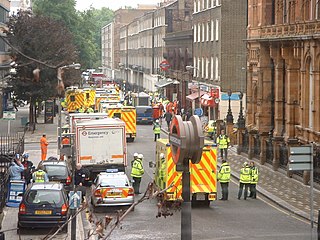
United Nations Security Council resolution 1611, adopted unanimously on 7 July 2005, after reaffirming the principles of the United Nations Charter and resolutions 1373 (2001) and 1566 (2004), the Council condemned the 7 July 2005 London bombings.

United Nations Security Council resolution 1617, adopted unanimously on 29 July 2005, after recalling resolutions 1267 (1999), 1333 (2000), 1363 (2001), 1373 (2001), 1390 (2001), 1452 (2002), 1455 (2003), 1526 (2004) and 1566 (2004) concerning terrorism, the Council renewed sanctions against Al-Qaeda, the Taliban, Osama bin Laden and associated individuals and groups for a further seventeen months.

United Nations Security Council resolution 1618, adopted unanimously on 4 August 2005, after reaffirming resolutions on the situation in Iraq, including Resolution 1546 (2004), the Council condemned terrorist attacks that had taken place in Iraq and expressed its determination to combat terrorism.
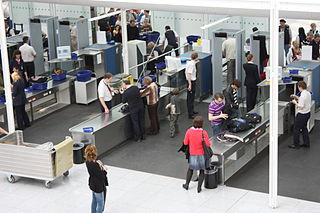
United Nations Security Council resolution 1624, adopted unanimously at the 2005 World Summit on 14 September 2005, after reaffirming previous resolutions on terrorism, including resolutions 1267 (1999), 1373 (2001), 1535 (2004), 1540 (2004), 1566 (2004) and 1617 (2005), the Council called on all states to co-operate in order to strengthen the security of their international borders by enhancing terrorist screening and passenger security procedures.
